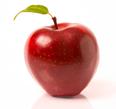As a mother, you'll give so much to your baby – during pregnancy, that also includes keeping your body in tip top shape through dietary changes and other healthy habits. For that reason, some soon-to-be mother's choose to implement some of the GAPS nutritional principles to prepare for a new baby and provide a solid nutritional foundation. Just remember, it is important to work closely with a GAPS Practitioner or healthcare provider to tailor a protocol that best suits you and your baby.
If you're thinking about starting the GAPS Diet before, during, or after pregnancy, Dr. Campbell-McBride offers some useful tips to help in the transition.
Before pregnancy
Dr. Campbell McBride recommends that women and their partners who aren't experiencing any serious digestive problems, allergies, fatigue or lethargy can follow the full GAPS diet four to five months before conceiving. Of course, life doesn't always go as planned, so if you are already expecting, congratulations! Don't fret, healthy habits can start any time!
Many people don't realize that it is just as important for both you and your partner to implement healthy dietary changes. Zinc deficiency is prevalent today and is a key factor in the reproductive systems in men and women. Supplementing with a high quality zinc or consuming foods high in zinc such as beef, venison, and lamb, may boost sperm levels in men and boost egg production in women.
Dr. Campbell-McBride also recommends expecting parents to avoid all processed foods, refined carbohydrates, and trans fatty acids.

During and after pregnancy
Congratulations, your expecting! There is so much conflicting information about what the "right" diet is for you and your soon-to-be baby's needs. There is no one-size-fits-all approach, but if you choose to implement some of the foundational aspects of the GAPS Diet, Dr. Campbell-McBride believes it can provide essential vitamins and nutrients recommended for a healthy pregnancy.
Dr. Campbell-McBride recommends avoiding all packaged and processed foods (full of sugar and trans fats) and focus on savory, fresh meals made with fish (fresh water, not predatory), organic eggs, homemade fermented dairy products, and organic grass-fed meats such as beef, chicken, turkey, and organ meats such as liver that are high in Vitamin A. Fats are essential for the balance of hormones and it is important to be consuming the "right" ones. Dr. Campbell-McBride recommends animal fats from grass-fed meats, butter, ghee, coconut oil, and olive oil.
You'll also want to eat plenty of fermented foods, as these will aid your digestion and absorption of nutrients, helping you provide your baby with plenty of B vitamins and vitamin K, among others. If you aren't used to eating these types of foods, Dr. Campbell McBride warns that you should introduce them into your diet gradually. In addition, drinking juices from fresh pressed organic/local fruits and vegetables will provide antioxidants and digestive enzymes.
Additionally, you may want to take a high-quality probiotic or cod liver oil at a maintenance level.
For further assistance, you can consult with a Certified GAPS Practitioner or visit the rest of our website for more information about starting the GAPS diet.

